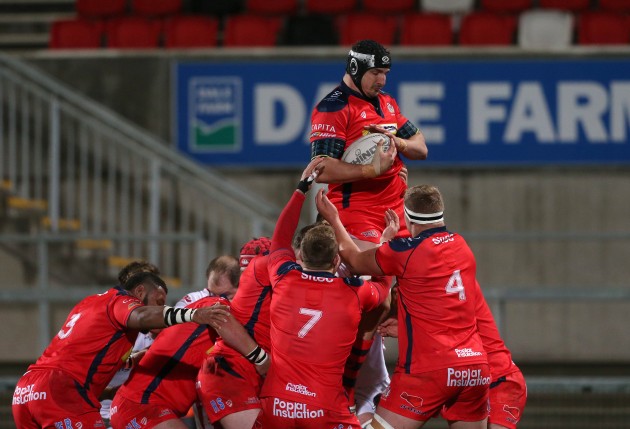In this follow-on from Charlie Pozniak’s diary of a typical week as a Manchester Grammar School pupil and a Sale Sharks U18 player, Mark Bennett – head of performance at Bristol – offers some advice on what the young back-five forward can improve upon.
Sunday – match
If Charlie is truly 10kg lighter than others playing in his position then he probably needs to gain this, or at least some of this weight to give him the best chance of becoming a professional rugby player. In order to do this he has to accept that improving his aerobic and game-specific fitness may need to be placed on the back burner for a while.
A proverb states: “You cannot ride two horses with one ass.” This can be applied very well to sport and fitness. Trying to develop too many components of fitness at one time is difficult if you have four-hours a day to do so. For a teenager who wishes to be in academia, it is almost impossible. He needs to focus the majority of his physical training in one area (muscle gain) and only maintain other aspects for the time being. When his weight is acceptable then he can focus on aerobic and game-specific endurance.

On guard: Bennett coaches a gym session with the Welsh Guard, when he was with Ospreys
Monday – 6am cycle
Sleep and nutrition are the basis of recovery from all activity and stress. What is the point in going into school early to cycle if he is short-changing his body and mind of its most important recovery resources? It is clearly shown in the relevant literature that the quantity of testosterone that men produce is positively correlated to the amount and quality of sleep they get. Increasing sleep by an hour or two will have a far more positive impact on his recovery than an early morning cycle at school. Long-term, this is also very likely to have a positive impact on his need to gain muscle mass and general health.
The day post-game should be recovery- and rest-based only. His main focus should be on sleep, hydration and nutrition, if there is time in the day after these are satisfied then he may wish to think about an easy bike, cross-train or pool session. If there is too little time in the day, recovery work should be placed aside. Recovery work should mitigate, not produce, stress.

Training day: Bennett sets out bags for Wales training
Tuesday – back session in the gym
He is a busy young man with little time. I am not sure that following a “body building-style” weight training programme, split into body parts, is his best option. He needs to try and get into the gym on maybe two or three occasions a week, for 60-90 minutes at a time. This time should be spent doing basic, whole body weight training sessions that include exercises such as squats, deadlifts and standing press.
Wednesday – three different training sessions
This is a tough day for anybody. In the long term for Charlie to develop something has to give. I can imagine that both his school and academy feel its necessary to participate in the rugby sessions so he needs to look at what is being done in the gym that day. If he had a training plan from the academy that allowed his Tuesday lunchtime session to be his “hard, development session” then this session at Sale Sharks could possibly become a technical session – learning more complex lifts (like Olympic variations) or maybe prehab and rehab for his various hip and hamstring problems. Either option would be physically less taxing and help him become more robust.

Shark attack: Charlie Pozniak takes the ball to Worcester (pic taken by Eugene Pozniak)
Saturday – post match
With exams around the corner the demands and stresses placed on Charlie will likely increase. Our body cannot separate out stressors and they all place the same demands on our ability to recover and stay healthy. If his school work and commitments have to increase then he needs to consider where to relax his efforts. He appears to already have little social life so this cannot give and his only option appears to be to lower his rugby commitments during this time.
If Charlie has the ability to be a professional rugby player then quitting piano and water polo may be right actions, but individuals need to think hard and take good impartial advice before the place all their eggs in one basket. Early years in sport should be general in nature; a multitude of sports throughout teenage years produces individuals with well-rounded skills and abilities. Later specialisation also means that overuse injuries and injury risks form repetitive movements or lack of general strength and fitness are less likely to be present.





